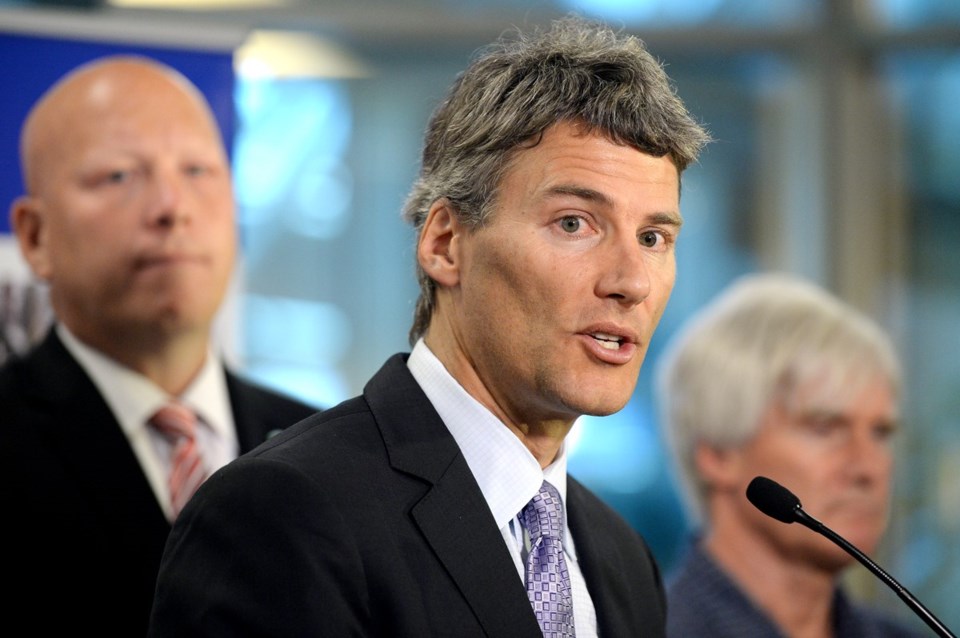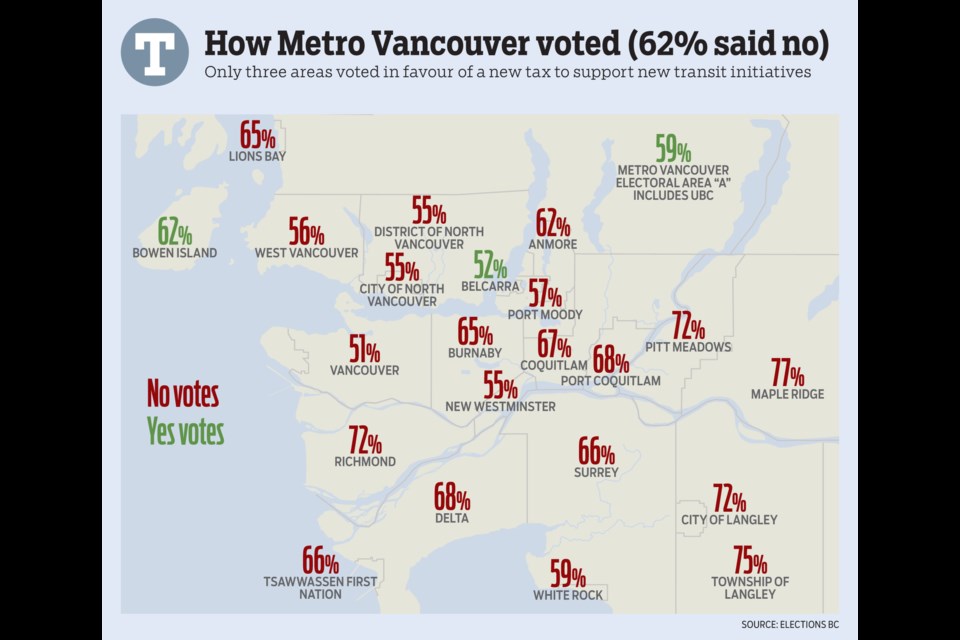Mayor Gregor Robertson was blunt in his assessment Thursday of what it will take to fund planned improvements to transportation in Vancouver and the region.
“On funding there is no plan B,” he told a press conference Thursday. “The mayors have been unanimous in stating that property tax is not an option to fund the mayors’ plan. Going forward, we need an alternate solution from the government.”

TransLink’s Mayors’ Council is stuck at a red light after its contentious plan to raise $250 million a year for Lower Mainland transportation infrastructure was voted down by Metro Vancouver residents.
The No side drew 62 per cent of votes compared with the Yes side’s 38 per cent, according to results released Thursday morning (July 2). Elections B.C. said 51 per cent of registered voters cast ballots in the non-binding plebiscite.
Metro Vancouver residents had been asked whether they would support a regional 0.5 per cent sales tax to pay for local government’s share of $7.5 billion to expand transit.
That money would have raised $250 million a year to go towards capital projects and operations. To proceed, the plan would still have needed funding commitments from the province and federal governments.
“Ultimately it’s up to the province to decide how the funding gap is met,” Robertson said. “They need to empower the region with the tools to raise the funding to improve our transportation network.”
Jon Garson, vice-president of the B.C. Chamber of Commerce, said there are concerns within the business community that municipalities will begin competing with one another for funding if there is no regional plan.
“We’ll have to look at how we’ll move forward now. We don’t have a new funding mechanism, which means no new money going into the system,” he told Business in Vancouver.
Garson added business investment throughout the region would suffer without an immediate commitment to transportation funding.
“It’s not that we will stand still in that time. We will move backwards,” he said.
The plan, which was created by TransLink’s Mayors’ Council, included a subway along part of the Broadway corridor to UBC, a new light rail system for Surrey, and a new Pattullo bridge. Also part of the plan were more buses and road, pedestrian and cycling improvements.
Keith Sashaw, president of the Association of Consulting Engineering Companies, said it appears the plebiscite turned out to be more of an indictment over TransLink’s governance rather than transportation investment.
“Certainly, we’re disappointed,” he said. “Even as employers, what we’re hearing from our members is that their employees are asking for better transit. We’re seeing some of our firms deliberately move to transportation nodes so that their employees can get to work quicker and easier and less [stressed] than fighting traffic.”
Those campaigning for the Yes side included most of the region’s mayors and a coalition of business groups, unions, environmental organizations, social service agencies and student groups. The Yes side argued the funds were sorely needed to prevent traffic congestion and reduce pollution as the region adds an expected one million more residents over the next 30 years.
The No side, headed by Jordan Bateman of the Canadian Taxpayers Federation, said the money needed for more transit could be found by cutting municipal spending.
- with files from Elizabeth Lu



